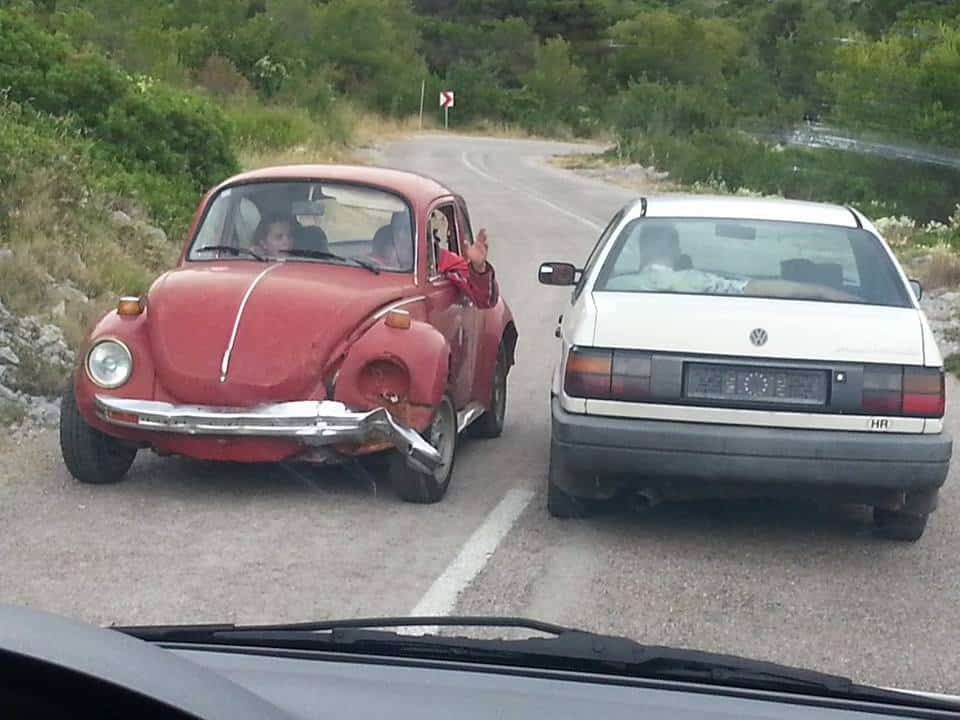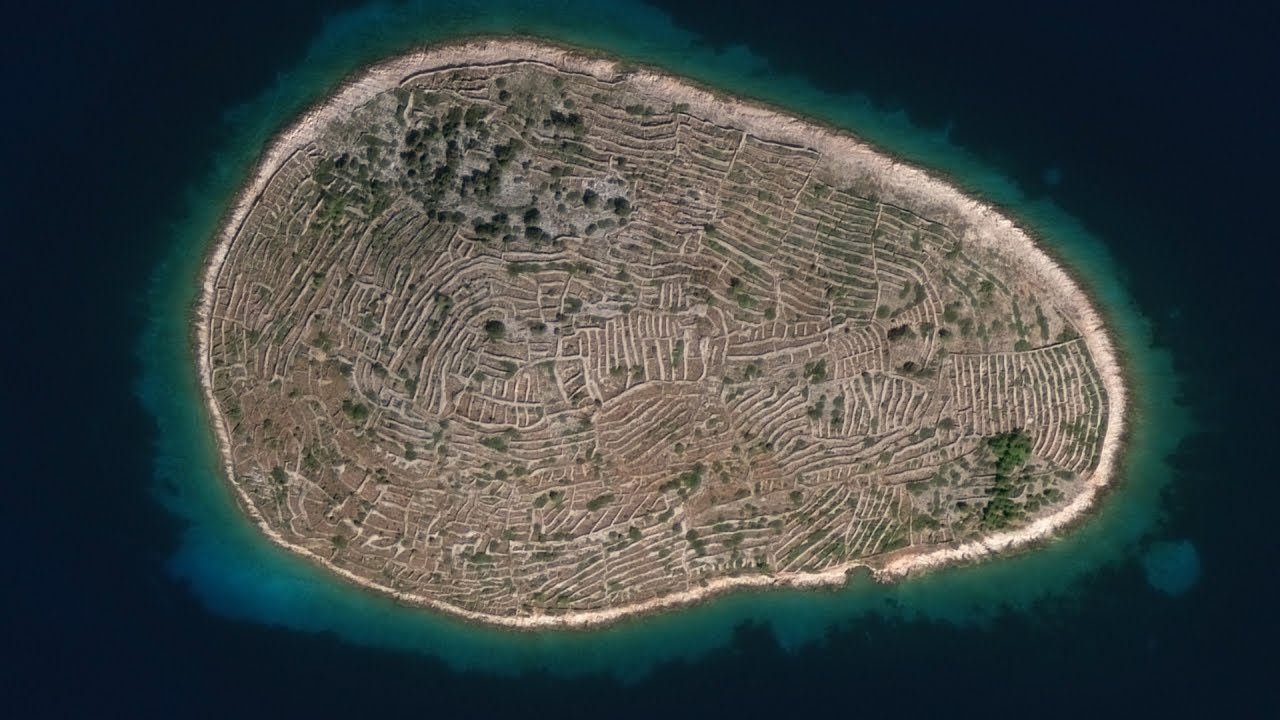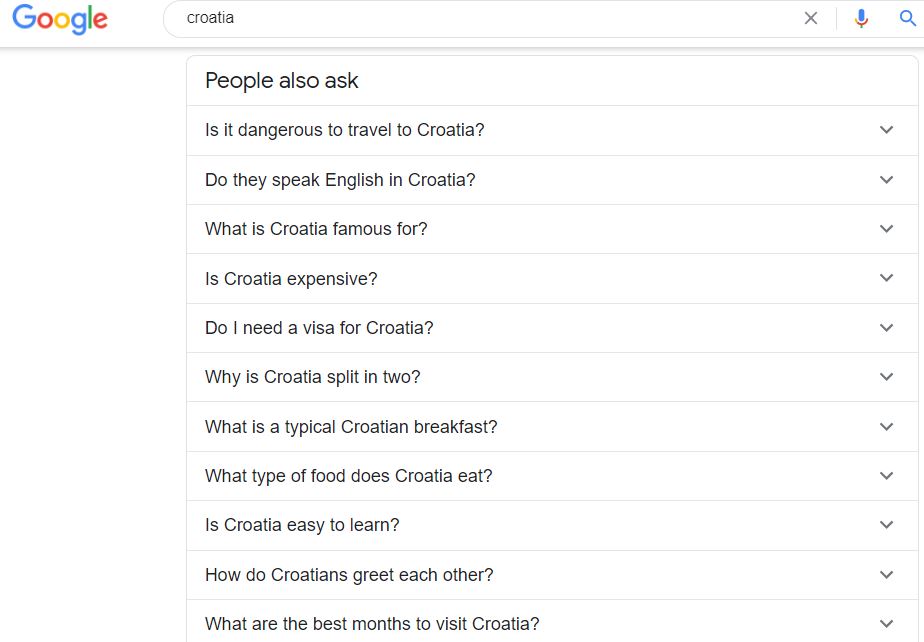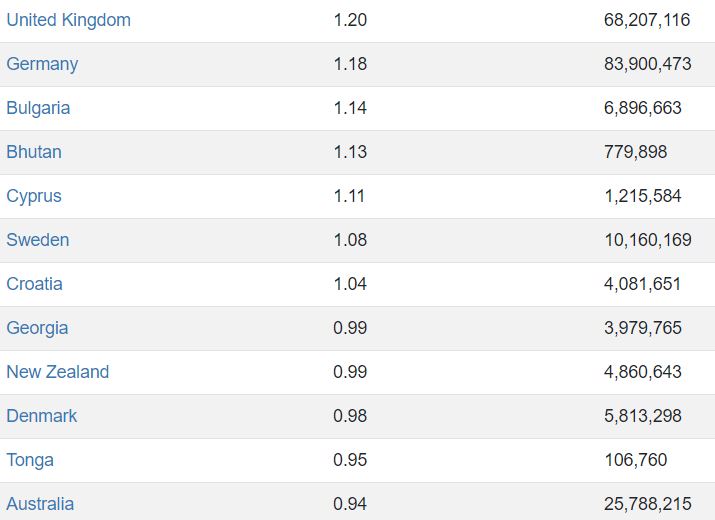February 14, 2021 - Google knows what people are searching for, and there are clues in the 'People Also Ask' prompt. So let's start answering - is it dangerous to travel to Croatia?
One of the challenges for a blogger after a number of years is to come up with engaging content to entertain one's readers. After ten years of writing about Croatia, I still feel that there is still SO much to write about, but some days inspiration can be lacking. Fortunately these days, there are plenty of tools available to help with ideas.
Among them, I noticed last night as I searched for the latest news from Croatia, is the 'People Also Ask' prompt from Google. If anyone knows what people are looking for, it is surely Google. So why not start a series answering the questions about Croatia that people are searching for?
Here is the first list of questions that Google prompted, all of which TCN writers can answer. And we shall, on a daily basis, in a new feature called People Also Ask Google, which you will be able to follow as it unfolds in one dedicated category on TCN here. So, let's start at the top...
Is it dangerous to visit Croatia?
Not long after I moved to Hvar back in 2003, there was an article in the local regional newspaper about the theft of 50 litres of olive oil from an outbuilding on the island. I laughed to myself. I had just come from a job as an aid worker with armed guard wherever I went in eastern Somalia; if the theft of olive oil was making the regional news, life in Croatia would be safe indeed.
Along with Japan, Croatia is the safest country I have ever lived in. As with everywhere else, you should always keep your wits about you regarding petty theft, but the biggest crime issue I have had to deal with personally was the theft of a fresh fish and my daughter's bag with her swimming stuff from an unlocked car in Hvar Town. So indignant was my six-year-old that she insisted on calling the police. The Hvar police were very helpful and promised to look into it, and asked her to tell Dad to lock his car in future. So it was all my fault.
For many years, I - like most people on the island - did not lock the house when I left. In fact, I never had a key on me at all. It really was that safe. It still is, but a couple of spates of petty theft mean that I lock things these days.

How safe is Croatia? Official advice from the British Embassy.
You can read the complete British Embassy advice (which is constantly updated) here. Regarding crime, this is what they have to say:
Crime levels are low and violent crime is rare.
Some tourists have been the victims of overcharging in so-called ‘Gentlemen’s Clubs’, sometimes amounting to thousands of Euros. Victims can be threatened with violence if they refuse to pay.
Take care in busy tourist areas, where pickpockets are known to operate. Avoid carrying large amounts of cash. Don’t leave valuables unattended, particularly on the beach. Use a hotel safe if possible.
Report all incidents of crime to the local police station and get a police report.
I would just like to emphasise the police report. Croatia loves its bureaucracy, and things will go a lot smoother with a police report if you are the victim of crime.
Is it safe to visit Croatian now with COVID-19?
The decision of whether or not you should be travelling at all during the pandemic is one that you will have invariably taken already, and I am certainly would not be so presumptuous as to tell you what to do. Croatia is currently closed for tourism (although tourists are still able to come), and a negative PCR test is required at the border, no more than 48 hours old, or a period of quarantine. Additonal requirements are in force for travellers from the UK, Brazil and South Africa. The situation changes rapidly as you know, and the latest information can be found on the daily TCN daily travel update. If you have a question you would like answered in real time, the Total Croatia Travel INFO Viber community and chatbot has helped hundreds of people over the last few months. You can find them here (you will need to download the Viber app).
Croatia has had a more relaxed approach to lockdowns than other countries. Indeed, it was the only EU country to allow non-EU/EEA travellers to enter for much of last year. Measures are in please for everyone's safety. Please respect them - you can get the latest from the TCN daily travel update (it is also available in 24 other languages).
Is Croatia dangerous for tourists? Comparing murder rates (which are VERY low here)
Just as non-violent crime is still comparatively rare in Croatia, so too violent crime. Murders and knife crime are very much the exception rather than the rule, and in the 2021 murder by country rankings, Croatia was thankfully very close to the bottom.
With an average of 1.04 murders per 100,000 inhabitants, Croatia lies below Sweden, Cyprus, Bhutan, Bulgaria, Germany and the UK - and far below poor El Salvador, which tops the rankings with 82.84 homicides per 100k people.
What violent crime there is tends to be related to local power struggles and grievances, which should not affect visitors in any way.
Is Croatia safe to visit for single women?
One of the things I hear a lot from foreigners or diaspora who have taken the lifestyle choice to move to Croatia is just how safe it is for their families, and that this was a key factor in the decision to move. Many of them remark on the wonder of seeing single women walking home late at night in cities, without any problem, something that would not be the case back home.
As anywhere, it is wise to take normal precautions, but I would say that Croatia is as safe as anywhere in Europe for the solo female travellor.
Will black tourists have any problems visiting Croatia?
Having lived in Africa, Asia and all over Europe after starting out life in multicultural Manchester, moving to Croatia felt a little different, but I couldn't put my finger on the reason why (apart from it being 100 times more beautiful than Manchester, obviously). One day, I had an African client meeting on the square in Jelsa, and then I realised what it was - I was surrounded only by white people. This was not a criticism, far from it, more of an observation. Only a year before, i had been working in Somalia and previously as an aid worker in Rwanda, but seeing this black person was something exotic. I can only imagine how things looked to the local islanders.
Although there are obviously exceptions, and it is somewhat of a generalisation, I don't think Croatians are racist, and I think sometimes curiosity is mistaken for something more sinister. A few years ago, I did some research and found that there were less than 30,000 registered foreigners in all Croatia, so the country is 99.3% Croatian. Add to that the fact that most of those non-Croatians are also white, and it is little wonder that other ethnicities are treated with more curiosity than perhaps they would be back home.
As I am white, it would perhaps best to leave the final word on the subject with a black African lady living in Zagreb, who wrote an excellent piece on her experiences - What is It Like for Black People Living in Croatia?
Is Croatia safe to visit for LGBT tourists?
Croatia is a relatively conservative and very Catholic country. Attitudes to the gay community in certain parts of the country (rural Dalmatia, in particular) are particularly entrenched, but that conservatism is offset by much more liberal attitudes in places like Rijeka.
The overall situation has improved greatly in the time since I moved here in 2003, and I think tourism has played a part in that. Gay Pride parades are now much more mainstream, for example, after a violent episode at Split Pride a decade ago. The coast and major tourist spots are much more accepting of gay tourists than a decade ago in my opinion, and I can't recall any major incidents in recent years. I would advise caution in overt expressions of affection in more conservative areas, where traditional positions are much entrenched, in particular the area of Imotski, whose burning of a gay effigy at last year's Carnival sent a message around the world that is not representative of other parts of Croatia by any means. If you would like more information, the Zagreb Pride website is an excellent place to start.

Driving in Croatia - is it safe?
From the British Embassy website:
In 2019 there were 297 road deaths in the Croatia (source: Department for Transport). This equates to 7.3 road deaths per 100,000 of population and compares to the UK average of 2.6 road deaths per 100,000 of population in 2019.
Having survived Ethiopia, where the Italians taught the locals to drive in Russian Ladas, anywhere feels safe to me. Some of the local driving leaves a little to be desired, and there tends to be a relaxed approach to driving with alcohol, particularly in more rural places, although the police have recently introduced draconian fines for those caught.
Road safety
Take care when overtaking and be wary of other road users unexpectedly overtaking in slower traffic. Minor roads are usually unlit at night.
Emergency road help (HAK) may be reached by dialling (385 1) 1987. This service is staffed by English speaking operators. Traffic information in English is available on 98.5FM during the tourist season only.
Driving regulations
It is illegal to drive with more than 0.05% of alcohol in the blood system.
You must drive with dipped headlights from the last weekend in October until last weekend in March, even during the daytime. You must have winter tyres on your vehicle between 15 November and 15 April. You must not use a mobile phone whilst driving.
It’s obligatory to carry a fluorescent vest in your car whilst driving in Croatia. You must keep the vest in the car and not in the boot. You should wear the vest while attending to a breakdown. All passengers must wear seat belts and special seats are required for infants. Children under the age of 12 must not sit in the front seat.

Conclusion: Is it dangerous to visit Croatia?
Did you know that the man who discovered fingerprinting was a policeman in Argentina who was born on Hvar? Or that Croatia has an island called Baljenac, which is strikingly similar to a fingerprint? With these facts, how could Croatia be anything but safe?
Croatia is as safe as any country in Europe, and that safety is one of its largely untapped marketing gems, along with its lifestyle and amazing authentic experiences. Have you booked your holiday to Croatia, Your Safe, Authentic Lifestyle Destination yet?
If you have any suggestions to add to this resource, please send to This email address is being protected from spambots. You need JavaScript enabled to view it. Subject Safe.
To follow the People Also Ask Google about Croatia series, click here.




